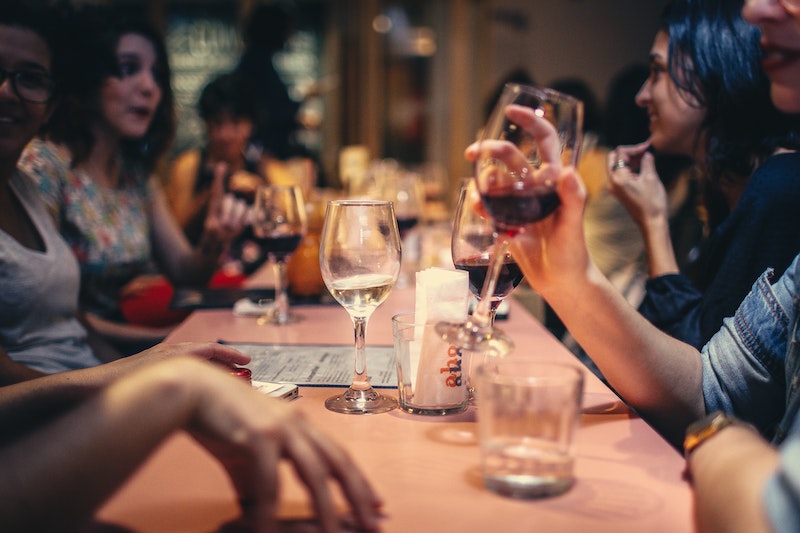In one study, shoppers were 42% more likely to buy chocolate when they received one free chocolate upon entry. Retail giants all over the world offer free samples and note uplift in sales as a result. Receiving, but not giving back, is hard. This is a deeply human trait. It is virtually impossible for a functioning human being to receive something and not return the favour. Robert Cialdini’s book Pre-suasion is all about using basic human psychology to persuade (or pre-suade) people. One may argue this is all about marketing and coercing customers but Cialdini notes that the function of language is not communication but influence. In that sense every thing you read or hear is trying to influence you and everything you say or write is trying to influence others. This book provides the right tools and techniques that makes us better communicators. Free gifts and samples is one such technique that piggybacks on our inherent need to reciprocate.
A hotel chain tried and failed to get its patrons to adopt the behavior of reusing towels by telling them how it was good for the environment. When it changed its communication to say that they will make a donation to an environmental charity from the savings the guests would enable, when they reuse their towels, the behavior did see an uptick but not appreciably. Finally, the hotel said they have made a donation to a charity and that guests’ reusing of towels is what helps them do this, the behavior changed significantly. A lot more people started reusing their towels. What enabled this was an unconditional investment on the part of the hotel chain to trigger the reciprocity trait in the guests.
Skeptics amongst us (me included) would be thoroughly distrustful of doing something like this because we are unsure how the ‘freeloaders’ would react. Wouldn’t they just take the free gift and then go off on their merry ways? Well, the short answer is they might. Not all free gifts trigger the same emotions and make the people reciprocate in the same way. Read on to understand how you can design great upfront gifts and actions to get people to reciprocate.
Characteristics of Free Gifts
A study conducted in restaurants revealed how the the gift matters and not all free upfront gifts are perceived the same way. A waiter was asked to give free chocolate to guests. Those guests ended up tipping 4% more than the control group that wasn’t. Another set of guests was given two chocolates & they ended up tipping 14% more. An extra chocolate made the gift seem meaningfully more. It cost only a few cents extra but in the minds of the guests, its value doubled. Another set of guests was given one chocolate and the waiter then started to go back, stopped, came back and gave them another chocolate. This unexpected gift increased tips by a whopping 22%.
The rule for triggering the reciprocity trait requires you to make an upfront investment in the form of the gift but your gift must be the following to effectively trigger the reciprocity trait.
- Meaningful
- Unexpected
- Customised
The first two characteristics are pretty straightforward. Curious about point 3? Read on.

In another restaurant experiment, people coming in were given free food (bread, popcorn, yogurt, etc) or a keychain. Those that were given food, ended up ordering almost 24% more than others. Offering free food, when a person has come to a restaurant to eat, should make them order less food, not more. Odd, right? It might not be intuitive but it is human psychology works in this case and this is the crux of the customization aspect of a gift.
When people come to a restaurant they are hungry. Feeding that hunger immediately is a gift, specifically customized for them. This kicks in the inherent reciprocity trait in a big way and makes them return this meaningful-unexpected-customised gift, immediately.
This need for reciprocation is universal and is ingrained in all cultures and societies around the world. It can even help make breakthroughs with hardcore terrorists. A popular example of this is the story of Abu Jandal. Osama Bin Laden’s personal bodyguard Jandal was being questioned in a Yemeni prison in the days after his capture. Attempts to get information from him proved futile. One of the investigators observed that he never ate the cookies served to him with his meals. Turns out he was a diabetic. At his next interrogation, he was offered sugar-free cookies with tea. This was an unexpected, meaningful, and customized gift and it is said that this is what allowed the interrogators to make a breakthrough with him and it eventually led to getting key information from him (including the names of 7 of the 9 hijackers of 9-11).
I run a startup called Harmonize. We are hiring and if you’re looking for an exciting startup journey, please write to jobs@harmonizehq.com. Apart from this blog, I tweet about startup life and practical wisdom in books.